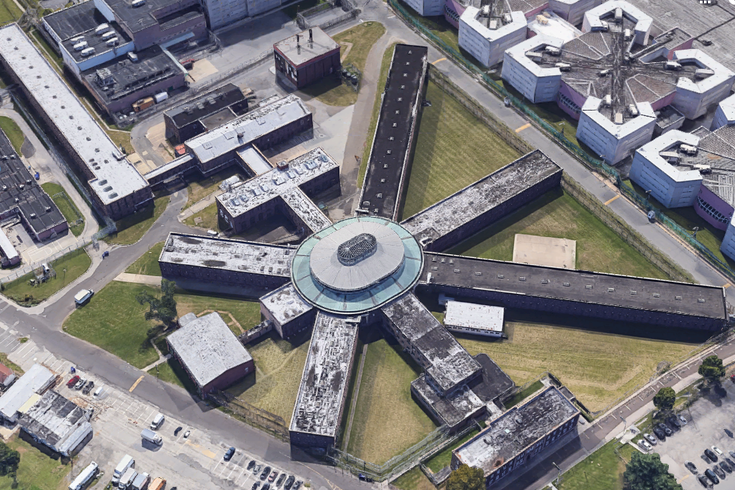
April 18, 2018
 Screen Capture/Google Maps
Screen Capture/Google Maps
The Philadelphia House of Corrections, 8001 State Road, will close by 2020. The move is due to the cost to maintain the facility and a larger plan to reduce Philadelphia's prison population.
The Philadelphia Department of Prisons revealed plans on Wednesday to close its nearly century-old House of Correction in 2020, marking the next step in a broader effort to dramatically reduce the city's prison population.
Located on State Road in Holmesburg, the House of Correction has been in continuous operation since 1927. City officials said the facility's constant maintenance needs and outdated security features make it obsolete in Philadelphia's changing criminal justice landscape.
“Reducing our jail population and closing the House of Correction has been among my highest priorities since taking office,” Mayor Jim Kenney said. “Reaching the point where we can shutter this facility once and for all – without needing to build a new prison – is a milestone."
With the help of a $3.5 million grant awarded by the MacArthur Foundation in 2015, Philadelphia has slashed its prison population by 32 percent since July of that year. At just under 5,500, the population now stands at its lowest level in 20 years.
The MacArthur Foundation's Safety and Justice Challenge presented 20 cities with an opportunity to develop data-driven approaches to reducing local jail populations and reversing racial, ethnic and economic disparities in the criminal justice system.
Philadelphia officials specifically looked at the impact of holding such a high number of inmates who were awaiting trial or otherwise had open cases. Only 20 percent of the city's prison population was actually serving a sentence in July 2015. The average length of stay for detainees — about 95 days — was four times the national average.
Philadelphia officials said 16 out of 19 of its initiatives have been implemented to date.
There are currently still 199 inmates being held at the House of Correction, which sits in close proximity to the Curran-Fromhold Correctional Facility and the Riverside Correctional Facility in Northeast Philadelphia. All remaining inmates will be transferred to the other facilities by 2020.
“The depopulation of HOC will give those incarcerated greater access to programs and services that were limited or unavailable at HOC because of the restriction of programming space,” Prisons Commissioner Blanche Carney said. “When HOC is closed, PDP can further advance its application of modern correctional practices, which encourages programs and services that rehabilitate and teach. This will better prepare incarcerated persons for reentry into society.”
Philadelphia Police Commissioner Richard Ross noted that while fewer people are in prison in Philadelphia, the overall rate of violent crime has not increased.
“In fact, since 2015, Part I crimes have decreased about three percent," Ross said. "While much work remains to be done, it is clear that the policies – and our partnerships – are working.”
Part I crimes account for both violent and property crimes. Aggravated assault, forcible rape, murder and robbery are classified as violent while arson, burglary, larceny-theft and motor vehicle theft are classified as property crimes.
Philadelphia did see an alarming increase in homicides in 2017, up to 312 from 277 and 280 in the previous two years dating back to the start of the MacArthur initiative. Homicides have decreased significantly over the last decade, however.
“Mass incarceration begins with jails and the local justice systems in which they operate,” said Laurie Garduque, director of justice reform at MacArthur. “The closing of the House of Correction is an example of what can happen when local leaders commit to smart reforms that make their justice systems fairer and more effective, with the aim of protecting the well-being of individuals, families, and communities. We hope this progress inspires leaders in other counties, cities, and states to rethink how jails are used and to join the growing movement of local justice reform across the country.”